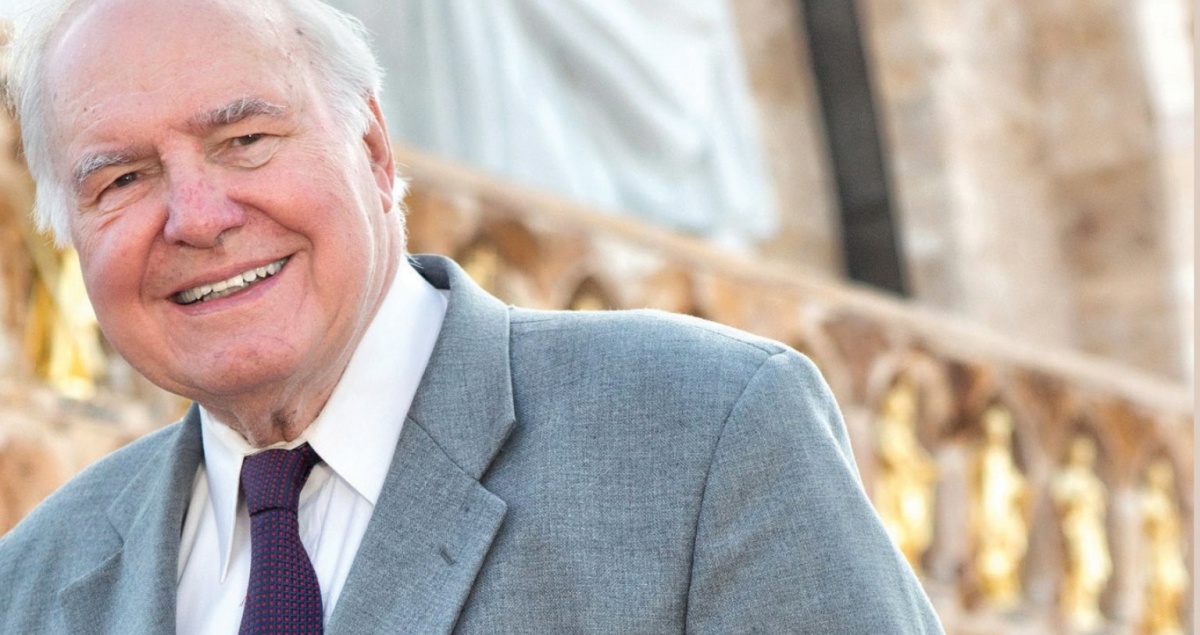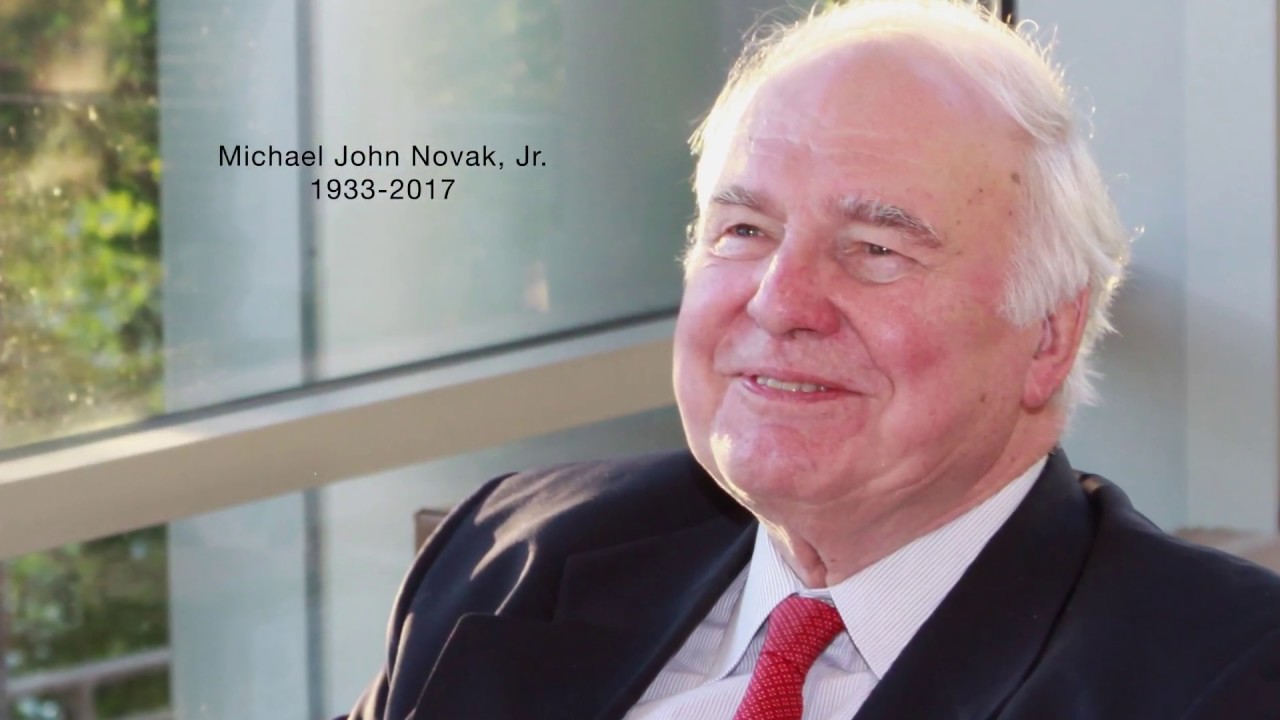About
Named after distinguished American theologian Michael Novak, this $15,000 award rewards new outstanding scholarly research concerning the relationship between religion, economic freedom, and the free and virtuous society. This award recognizes those scholars early in their academic career who demonstrate outstanding intellectual merit in advancing the understanding of theology’s connection to human dignity, the importance of the rule of law, limited government, religious liberty, and freedom in economic life.
Award Details
Applications
Eligible scholars must submit an application form and supporting documentation by March 15. Nominations are no longer necessary. Download the Application Form [PDF].
Selection Process
Shortly after the application deadline, applications are reviewed and finalists are selected. The Novak Award recipient will be selected by the Acton Institute. Award decisions by the Acton Institute are final and not subject to appeal.
Award Communication
All award decisions are communicated via e-mail.
Performance Assessment
Like the vast majority of universities, scholarship programs, and research institutes, the Acton Institute does not enter into discussions with unsuccessful applicants concerning the particular reasons for their denial.
Eligibility
Current doctoral candidates or those who have received a doctorate in the past five years are eligible. Applicants should have studied theology, religion, philosophy, history, law, politics, economics, or related fields.
Strong academic performance is essential.
Scholar applicants must have a demonstrated interest in the relationship between religion, economic liberty, and the free and virtuous society. Important principles in this relationship include the recognition of human dignity, the importance of the rule of law, limited government, religious liberty, and freedom in economic life.
Scholar applicants must display the potential to contribute to the advancement of a free and virtuous society.
The Novak Award is open to all qualified persons irrespective of race, sex, age, national or ethnic origin, citizenship, religious affiliation, or disability.
Conditions
Calihan Lecture
The recipient of the Novak Award will present his or her research in a public forum known as the Calihan Lecture.
Expenses
Travel expenses for the recipient to and from the Calihan Lecture will be provided in addition to the $15,000 award.
Acknowledgement
Any published work drawn out of the award must also be granted by-line acknowledgment to the Novak Award and the Acton Institute.
Publicity
The Acton Institute may publicize the award and has permission to identify a recipient as a Novak Award recipient.
Tax Compliance
Recipients must comply with any applicable tax regulations.
Applying
A complete application is required to be considered for this award and includes the following:
- A signed application form [PDF] (must be completed in English). Applications are due on March 15.
- A Curriculum vitae.
- A 500-word essay that describes your intellectual development, future plans, and career goals. This statement should elaborate on the source and development of your interest in the ideas and principles listed above. Include how you expect to contribute to a better understanding or application of these ideas.
- A research paper, refereed published article, or other scholarly work, such as a book, monograph, or a conference paper, on a theme relevant to religion and economic liberty or a related theme.
- Two letters of recommendation from professors or other established scholars in your field.
The application period is now open. Completed applications must be mailed to the Acton Institute and postmarked by March 15.
How to Apply
Acton Institute
Grants and Awards
98 Fulton Street E.
Grand Rapids, MI 49503 USA
Past Winners
Freedom to Bind: The Marriage Contract for a Free Society
Clara Piano (2024)
Intellectual Vices, 'Certainism,' and Liberal Democracy
Ismail Kurun (2023)
Outstanding research in the fields of ethics, politics and economics
Erik W. Matson (2022)
Self-Love & Benevolence in the Thought of Adam Smith
Dr. Orlando Samões (2021)
Telos and Markets: Aristotle, Burke, and Hayek on the Role of Economics in the Wider Social Order
Gregory M. Collins (2020)
Religion, Society, and the Market: The Legacy of Wilhelm Röpke
Giuseppe Franco (2019)
Crisis in the Public Square: A Reformational View
Lucas G. Freire (2018)
Knowing before Judging: Law and Economic Analysis in Early Modern Jesuit Ethics
Wim Decock (2017)
The Crisis of Liberty in the West
Ryan T. Anderson (2016)
Dependence on God and Man: Toward a Catholic Constitution of Liberty
Catherine R. Pakaluk (2015)
Virtuous Poverty, Christian Liberty: A Free-Market Appreciation of Pope Francis
Oskari Juurikkala (2014)
“Second Thoughts on Newman”: Newman, Constitutions, and Markets
David P. Deavel (2013)
Society, Economy, and Culture: Challenges for the West
Giovanni Patriarca (2012)
Social Justice, Government, and Society
Hunter Baker (2011)
The Themes of the Free Market Economy and State in the Encyclicals of Benedict XVI
Kęstutis Kėvalas (2010)
Consumerism, Subsidiarity, and the Market
Andrew V. Abela (2009)
A Rosminian Vision for the Post-Crisis Global Economy
Carlos Hoevel (2008)
Centesimus Annus: Law, Human Rights, and the Free Society
Andrea Schneider (2007)
Spiritualizing the World: Secularism as a Religion—Challenges for Faith and Liberty in Europe
Jan Kłos (2006)
The Importance of the Penultimate: Reformed Social Thought and the Contemporary Critiques of the Liberal Society
David M. VanDrunen (2005)
Business Ethics and Truth: Restoring the Broken Nexus
Maximilian B. Torres (2004)
What Profits for a Man to Gain: Just (the) Price (of the Soul)
Jude Chua Soo Meng (2003)
The Hope of Salvation and the Sentence to Death: Religion, Despair, and Terror in the Modern World
Michael Casey (2002)
The Labour Theory of Value and Social Justice
Arnaud Pellissier (2001)
Overview
Acton Institute President Rev. Robert A. Sirico reflects on the passing of his friend and mentor Michael Novak, who through his writings influenced scores of scholars and theologians to recognize the potential of the market economy and the centrality of the dignity of the human person.








